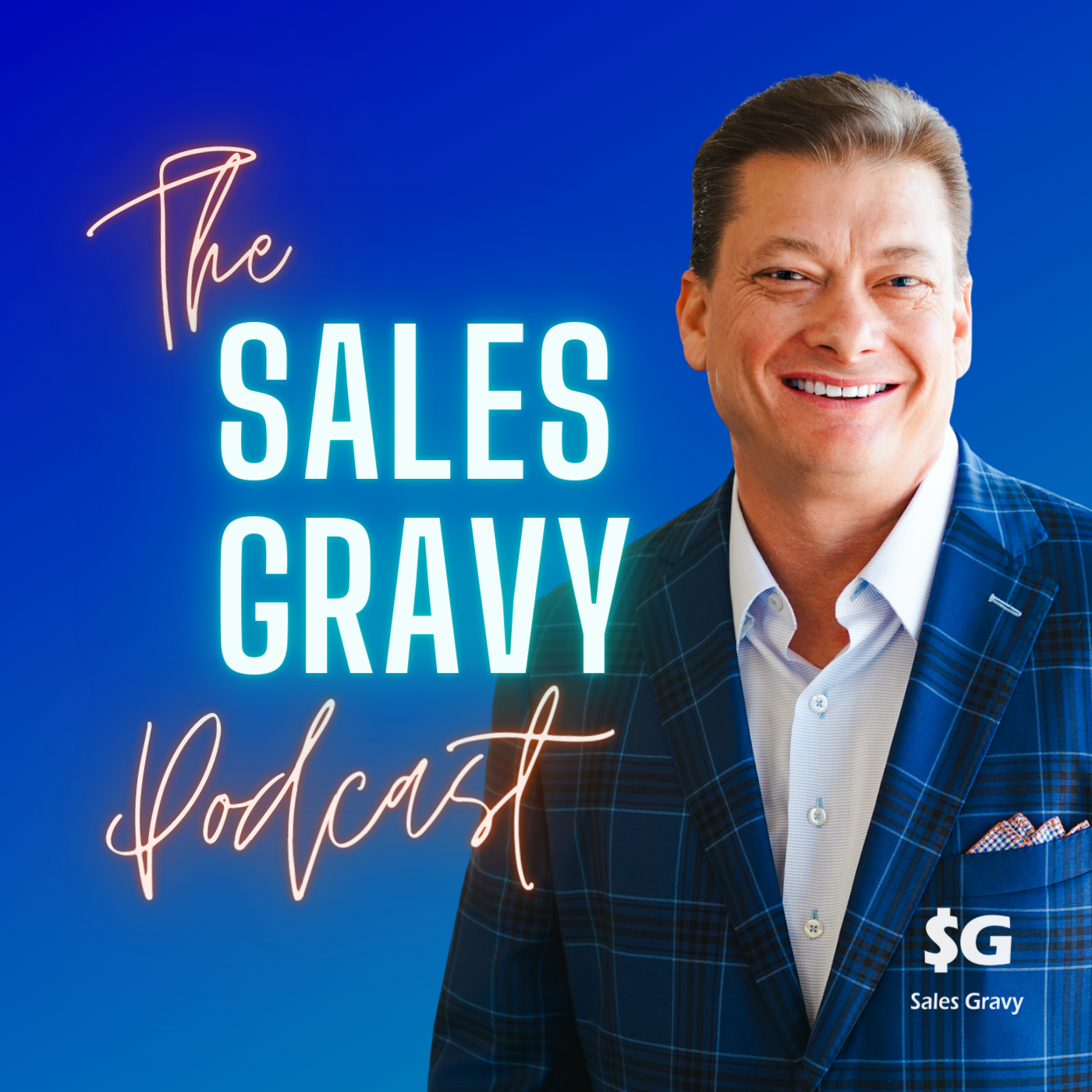

Sales Gravy: Jeb Blount
Jeb Blount
From the author of Fanatical Prospecting and the company that re-invented sales training, the Sales Gravy Podcast helps you win bigger, sell better, elevate your game, and make more money fast.
Episodes
Mentioned books

16 snips
Jun 16, 2025 • 12min
Busting the Myth About Natural Sales Talent (Money Monday)
Explore the myth of natural sales talent and whether successful salespeople are born or made. The discussion cleverly intertwines personal golf anecdotes, highlighting that consistent practice and good coaching are essential for mastery in both sales and sports. Discover how tools like LinkedIn and AI can enhance prospecting, reinforcing the idea that growth comes from ongoing learning rather than innate ability. It's an engaging reminder that success is a journey shaped by persistence and the right support.

11 snips
Jun 12, 2025 • 52min
The Alter Ego Advantage of Top Performers
In this engaging discussion, Richard Fenton and Andrea Waltz, co-authors of "Go for No!", explore the transformative power of embracing rejection in sales and life. They share insights on how adopting alter egos can enhance performance, highlighting stories of top performers like Kobe Bryant. The conversation dives into overcoming emotional barriers, the importance of human connections in a digital age, and how the mindset shift toward accepting rejection can lead to greater success. Tune in for practical wisdom and inspiration!

9 snips
Jun 10, 2025 • 22min
Stop Chasing Pipeline Multipliers: The Science of Building a Clean Sales Pipeline (Ask Jeb)
Dive into the myth of pipeline multipliers and discover why quality trumps quantity in sales. A caller shares her successful transition from childcare to EdTech sales, highlighting the value of mentorship. Find out how focusing on clean pipelines can lead to better forecasting. Learn the dangers of fake pipeline and how unqualified leads can drown forecasts. This insightful discussion emphasizes disciplined prospecting and meaningful engagements over vanity metrics for a more predictable revenue stream.

8 snips
Jun 9, 2025 • 9min
Top Sales Pros Know When to Exit Bad Deals (Money Monday)
Have you ever felt that tingling intuition while pursuing a deal that just wasn’t going to close? The discussion dives into the importance of recognizing when to cut your losses. Top sales professionals know that investing time in unproductive prospects is a waste. They quickly walk away from low-probability deals, saving their energy for opportunities with real potential. Learn how this approach not only boosts performance but also lightens the emotional load associated with difficult deals.

6 snips
Jun 5, 2025 • 27min
5 Ways to Sell More by Uniting Sales and Marketing
Brandon Cobb, a marketing executive with over 15 years of experience and founder of Marketing Exec, discusses the crucial alignment between sales and marketing. He highlights the pitfalls of misaligned teams that lead to wasted leads and declining revenues. Cobb emphasizes the importance of understanding the customer journey and leveraging AI for data-driven strategies. He advocates for hyper-personalization and innovative tactics, urging businesses to foster collaboration for improved efficiency and profitability.

5 snips
Jun 4, 2025 • 15min
Why Talk Time is the Worst KPI for Measuring Sales Performance (Ask Jeb)
Is talk time the worst KPI for sales performance? The discussion reveals how a reliance on this metric can hinder true talent and effectiveness in sales. With anecdotes from a top performer who's crushing quotas but falling short on talk time, the hosts critique the obsession with vanity metrics. They draw parallels to 'Moneyball', emphasizing that conversations need to drive revenue, not just noise. The need for deeper, meaningful interactions and a focus on conversion rates rather than mere activity is key to effective sales coaching.

Jun 2, 2025 • 13min
In Field Sales, Driving is Not an Accomplishment (Money Monday)
Field sales professionals are reclaiming the art of face-to-face interactions as the pandemic recedes. With AI noise complicating digital outreach, knocking on doors is gaining traction as a powerful relationship-building strategy. However, sales reps must confront the challenge of excessive travel time. The key takeaway? Maximize customer engagement by minimizing windshield time, ensuring that every journey leads to meaningful connections and improved sales outcomes. Remember, you’re paid to sell, not to drive!

74 snips
May 30, 2025 • 1h 15min
Why Top Sales Performers Use AI as Their Secret Weapon
Daniel Disney, a social selling expert and LinkedIn influencer, shares insights on leveraging AI in sales. He emphasizes that AI can boost productivity, tackling time-consuming tasks like data entry and prospecting. With AI's ability to analyze LinkedIn profiles and personalize outreach, sales professionals can engage more effectively. Disney advocates for a hybrid approach, combining AI with authentic human connections to enhance sales success. He also reflects on his personal journey from shyness to thriving in B2B sales, shaped by pivotal experiences in his early career.

5 snips
May 28, 2025 • 11min
Strategies to Turn Your Windshield Time Into a Competitive Advantage (Ask Jeb)
Field sales reps often face the challenge of turning tedious driving time into an asset. Discover how to transform frustrating hours in traffic into opportunities for self-development and productivity. Learn effective territory planning to minimize driving and maximize face-to-face interactions. Embrace the concept of 'Automobile University' by using drive time for learning and growth. Turn those miles into meaningful connections and strategies that enhance customer engagement and give you a competitive edge.

25 snips
May 23, 2025 • 48min
3 Reasons Most Value Propositions Fail and What to Do About It
In this discussion, Lisa Dennis, President of Knowledge & Associates and author of "Value Propositions That Sell," reveals why most value propositions fail—primarily because they focus too much on the seller rather than the buyer. She shares strategies for creating engaging, personalized messages that resonate with prospects' needs. Lisa highlights the significance of collaboration between sales and marketing teams for cohesive messaging, as well as the importance of aligning value propositions across customer interactions to enhance overall sales effectiveness.


